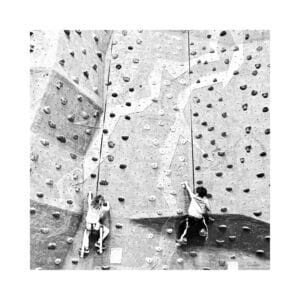Many of us have imagined ourselves doing better as parents. Some of us have even imagined ourselves acting as an ideal parent. Someone who would live their values. We would read parenting books and wouldn’t raise our voices with our kids. We would have the patience to play board games and have time to assist our kids on their projects. Most importantly, we would have healthy relationships with our kids and be the ones who the kids would reach out to for advice and comfort.
But then reality kicks in; we get triggered, impatient, tired, and we don’t always have time. We find ourselves reacting in ways that are not aligned with our aspirations. We feel guilty and ashamed. As a result, we start asking, “Why do I get so angry?”, “Why can’t I be more patient, like my friends?”, “What’s wrong with me?”
Despite all the plans we had in mind, we feel so far away from the parent we want to be. I have definitely walked a mile in those shoes. Time and again, I failed to implement what I have learned and showed up in ways that I am not proud of. I have felt the shame of not meeting the expectations in my head.
I was desperate for answers, so I spent years studying the gap between our expectations and actions, and how to close it. However, the answers I needed were not in any traditional parenting resources; they came from an unexpected place: the science of learning. Over time, three principles began to take shape in my mind. These evidence-based principles have helped me and others navigate our parenting journey with intention, confidence, peace, and clarity, all while authentically modeling life-long learning for the kids. You don’t have to spend years like I did searching for a direction and principles that will serve you each step of the way. I’m going to share with you why it’s critical to start thinking differently on your journey and how these guiding principles can help you take ownership of your parenting experience today.
Bringing the science of learning home
Although it may seem unconventional to approach parenting with the science of learning in mind, I believe it actually makes sense. Here is why. Every stage of parenting invites us to face new experiences and new challenges; from raising babies to raising young adults, to facilitating siblings’ conflicts and cultivating healthy relationships. Hence we need to develop our abilities and skills as the kids grow and as the family expands. Additionally, we need to grow a new skillset in an area that is often neglected by many parents – to care for and cultivate our own wellbeing and growth so we can care for others. While the challenges and the skills needed are always changing, what doesn’t change is the fact that we need to engage in a process of learning.
While this might sound obvious, many of us take the process of learning for granted and approach it without fundamental knowledge of the brain – the organ in which learning takes place. We don’t even think about it, because we assume we know how to learn. After all, learning is something we do throughout our entire lives. Indeed, many parents invest in learning, but despite that they don’t feel satisfied with the results. Regardless of where you are on your parenting journey, if you want to progress toward your aspirations effectively and support your kids’ lifelong learning, it’s important to learn more about learning.
Learning is a process that is impacted by various factors. Therefore, the science of learning is a field that connects research findings across many disciplines including neuroscience, psychology, the social sciences and more. Science explains why we experience the parenting gap, how the brain drives our actions, why change is possible (but takes time and effort), and even why we’re doing our best at any moment (including the times when we don’t feel that way).
When we apply the science of learning to parenting, it gives us clarity on how to approach and navigate the journey ahead. Additionally, it gives us clarity on why it’s important to cultivate a safe environment and learning-oriented values at home to support our kids’ ability to learn.
Guiding Principles
At the Becoming Lab we take a learner-centric approach to parenting. The following principles guide us:
- Authentic Role Modeling – We’ve all heard the statement “The most important thing is role modeling”. We read it in books and hear it from experts in parenting classes. Why is role modeling so important? Imitation is one of the most powerful forms of learning. Our kids learn more from our actions than our words. So when things become challenging and we react, unintended lessons are being learned. The point here is not to evoke guilt or shame but rather it’s an invitation to compassionately own our human limitations AND commit to a learning path that focuses on transforming our own actions. We choose to educate by example and hence seek to transform and develop our own abilities, not the kids’. It’s important to note here that the goal is not to fake, pretend, or act in a certain way, but to go beyond it. The goal is to create the change within us so it will be authentically radiated from the inside out.
- Parent as the Learner – So we want to learn how to transform our actions and become better role models. At the same time many of us feel stressed, exhausted, and mainly operate in survival mode – conditions that inhibit learning. More broadly, the factors that impact learning include the learners’ physiological and psychological needs, beliefs, wellbeing, emotions, passions, context and environment. To make our learning journey effective, we start by honoring and treating ourselves as learners – we intentionally develop skills and routines to meet our needs and care for our wellbeing. This learner-centered principle will set us up to approach the learning journey and inevitable challenges ahead with more calm, optimism, and compassion.
- Intentional Practice – Learning and modeling our values requires the development and integration of various skills — from communication and compassion to listening and noticing, from emotion regulation and appreciation to creative problem-solving and collaboration. Because theory doesn’t prompt behavioral change, a strong focus on practice is needed. Intentional practice takes time, attention, refinement, and effort, which eventually leads to structural change in the brain. This change creates a new foundation for the actions and qualities we want to cultivate.
Educating by example and approaching parenting with these principles in mind is hard. The human brain doesn’t love change as it is perceived as a threat. At the same time, change is what we need to master in order to progress toward our aspirations and fulfill our goals. By focusing on the learning process over outcome, these principles can be used by any parent who seeks to change their parenting experience, regardless of where they are in their parenting journey.
Additional benefits of embracing these principles is that focusing on our own learning – on something that we can control – gives us a sense of progress and internal reward to keep our learning going. When things don’t go well, we can always reflect and reframe situations in ways that will generate insights. And in the big picture – when we think about purpose and meaning – these principles helped me and others see how the change we make as parents contributes to the change we want to see around us – at home and beyond.
For example, the programs I developed and tested invited individuals to practice appreciation. With the support of a community, we all focused on training our minds to pay attention to the good things we have in life. It was common to hear how this practice positively affected the way we communicated with our kids, partners, coworkers, and internally – with ourselves. These results motivated me to create the Becoming Lab and develop resources for parents who are interested to live, learn, and parent better.
If you value learning and growth and are ready to practice and become the change you want to see, join our community to learn how these principles come to life and how you can start shifting your parenting experience today.



3 Responses